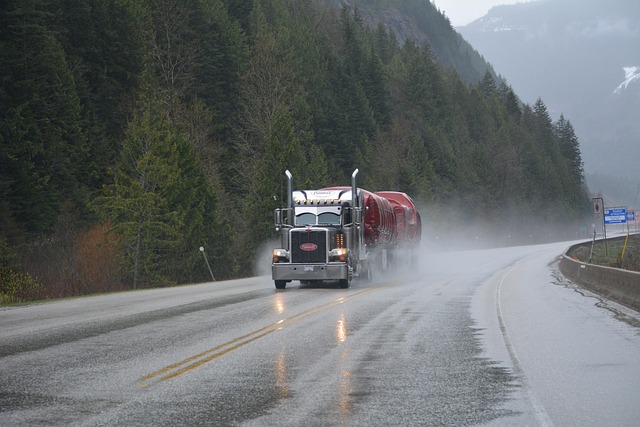Getting into an accident with a massive commercial truck is nothing short of terrifying. The sheer size and weight of these vehicles can lead to devastating consequences, not just for your car but for your health and peace of mind. So, what happens next? What should you expect in a commercial truck accident claim?
If you’re tangled up in this mess, don’t worry—you’re not alone. This guide will break everything down in plain English, from the nitty-gritty legal procedures to how much you might pocket in compensation. Let’s get started!
The First Steps After a Truck Accident
Before diving into the claims process, let’s go over what you should do immediately after a truck accident.
1. Prioritize Safety and Call for Help
- Move to a safe location if possible.
- Dial 911—report the accident and request medical assistance if needed.
- Do not engage in unnecessary conversations with the truck driver.
2. Gather Evidence
- Take pictures and videos of the accident scene, vehicle damage, and any visible injuries.
- Collect witness statements and their contact details.
- Note down details about the truck driver, company name, license plate, and insurance provider.
3. Seek Medical Attention
Even if you feel “fine,” get checked out. Some injuries take time to show up, and a medical record is crucial for your claim.
4. Notify Your Insurance Company
- Report the accident but avoid making statements that could be used against you later.
- Do not accept quick settlements without consulting a lawyer.
Understanding the Claims Process
So, what should you expect in a commercial truck accident claim? Unlike fender-benders between regular cars, these cases are complex. You’re dealing with big companies, aggressive insurance adjusters, and legal loopholes that can trip you up if you’re not careful.
1. Determining Liability
One of the first hurdles is figuring out who’s at fault. Liability in truck accidents can fall on multiple parties, including:
- The truck driver (if they were speeding, distracted, or driving recklessly)
- The trucking company (if they failed to maintain the vehicle or pushed unrealistic schedules)
- The truck manufacturer (if faulty parts played a role)
- Cargo loaders (if improperly loaded cargo caused the accident)
2. Investigation and Evidence Collection
A thorough investigation will take place. This might include:
- Reviewing the truck’s black box data
- Checking driver logs for hours worked
- Examining maintenance records
- Looking into any history of violations by the trucking company
3. Filing the Claim
Your attorney will file a claim against the responsible party’s insurance company, outlining the damages and compensation you’re seeking.
What Compensation Can You Expect?
Truck accident claims typically seek compensation for:
- Medical expenses (past, present, and future)
- Lost wages (if you’re unable to work)
- Pain and suffering (physical and emotional distress)
- Property damage (repair or replacement of your vehicle)
- Punitive damages (if the truck company was grossly negligent)
The amount you receive depends on factors like the severity of injuries, medical costs, and whether you share any fault in the accident.
Challenges You Might Face
1. Dealing With Insurance Adjusters
Insurance companies are not your friends. Their job is to minimize payouts, so expect tactics like:
- Lowball settlement offers
- Delaying the claim process
- Asking for recorded statements to twist your words
2. Proving Negligence
Truck accident cases require solid evidence. If liability isn’t clear, the other party will fight tooth and nail to avoid paying.
3. Legal Complications
Since multiple parties could be responsible, these cases often take longer to resolve. Trucking companies have their own legal teams—making it crucial that you have an experienced attorney on your side.
FAQs About Truck Accident Claims
1. How long does a truck accident claim take?
It depends. Some claims settle in months, while others drag on for years if they go to trial. Factors include the severity of injuries and whether liability is disputed.
2. Can I still file a claim if I was partially at fault?
Yes! Many states follow comparative negligence laws, meaning you can recover damages even if you were partially responsible—though your payout may be reduced.
3. Do I really need a lawyer?
Absolutely. Truck accident cases are way more complicated than regular car crashes. A lawyer can help level the playing field against powerful trucking companies and insurers.
4. How much does a lawyer cost?
Most truck accident attorneys work on a contingency basis, meaning they only get paid if you win your case.
Conclusion
Knowing what to expect in a commercial truck accident claim can make a world of difference. From gathering evidence to negotiating with insurance companies, the process is far from simple. But with the right strategy—and a solid legal team—you can fight for the compensation you deserve.
If you’re in this situation, don’t go it alone. Get professional help, stand your ground, and don’t let big insurance companies bully you into settling for less than what’s fair. Stay informed, stay prepared, and take control of your claim!
